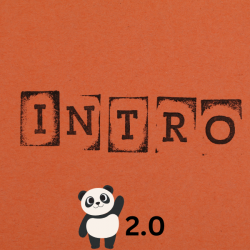How to Choose the Right Programming Language for Your Needs


How to Choose the Right Programming Language for Your Needs
Defining Your Goals
Choosing the right programming language for your project can be a daunting task, but it doesn’t have to be. If you take the time to do your research and explore your options, you will find that there is a language that fits perfectly with your unique goals and requirements.
To start, you should understand the objectives of what you want to achieve with this project. Knowing the project scope and where it is likely to lead are both important for deciding which language will best serve your needs. It is also crucial to consider your skill level in order to select a language that you can easily learn and use efficiently.
Once you have an idea of what type of language will work best, take some time to explore its various features and capabilities. It is important to get familiar with all of the available options in order to decide if this language will give you the flexibility that you need for future development. Additionally, researching its popularity and uptake rates will provide valuable insights into how well suited it would be for deployment and scalability purposes.
Finally, estimating how long it would take for you to develop in this language can also help sway your decision one way or another. If you are working on a strict timeline, make sure that selecting a particular language won’t constrain or slow down development too much. Otherwise, if there are fewer constraints then this could result in more flexibility when considering high level features and allow for further experimentation with different tool sets which may be available in certain languages only. Data Science Course in Delhi
Research Available Programming Languages
Compiler availability is important in order to compile programs into machine code that can be read by your computer. Not all languages support all compilers. Additionally, some compilers may be more efficient than others depending on the language being used. The runtime environment will determine if a specific application or operating system is needed for your code to run successfully. Additionally, some languages require specific libraries and components that must be installed prior to writing code.
It’s also important to consider the community resources available for each language. There are online forums and blogs where you can interact with developers who have knowledge about specific languages as well as ask questions and seek help with coding problems. Additionally, most modern programming languages offer proper documentation along with tutorials and sample code that can be easily accessed online.
Vendor support & updates is another factor that should not be overlooked when choosing a programming language. While it’s understandable that some languages may be free or open source with no formal support from a company, it’s always helpful if you can get assistance from vendors in case you encounter any issues while developing your application.
Identifying the Benefits of Each Language
First, research the language to gain an understanding of what it is capable of. Analyze the requirements of your project as well as how performance may be affected by the language you choose. Consider code interoperability with other languages; this will help you determine if it’s worth implementing additional languages into your program. Additionally, assessing readability will affect how easy it is for new developers to pick up and learn the language.
Next, research community support. This is especially important if you are relatively new to coding and need assistance in troubleshooting. See who is using the language and how active they are within developer forums or chat rooms. Analyze its popularity not just within the industry but overall; this can help determine its longevity in terms of relevance and usage over time. Data Analyst Course in Delhi
Finally, once you have done extensive research on the various programming languages available, compare each one side by side in order to identify which would best suit your needs and then select accordingly taking into account both short term projects as well as long term plans. Doing so will ensure that you are able to choose a language that fits all your programming needs while minimizing any potential stress or frustration down the line.
Consider Compatibility With Other Technologies
First, consider the languages you need to work with. Different languages have different strengths and weaknesses. Make sure to match the language of your choice with those you need to work with in order to ensure a smooth integration process. Additionally, consider platform compatibility as well. Different languages may only be supported on certain operating systems or hardware platforms.
Another important factor is framework compatibility. Different programming languages may only be compatible with certain frameworks or libraries. Make sure that whatever language you choose will be able to integrate seamlessly into any existing codebases or networks you may already have in place. The same holds true for development tools: make sure your chosen language can work well with existing tools like build automation or debugging software.
Finally, pay attention to network protocols and standards associated with each language as well. Not all languages can communicate across different networks equally effectively; this is especially true if there are proprietary protocols or standards in place that both sides must adhere to in order for communication to be successful.
In conclusion, compatibility is key when selecting a programming language for your needs; taking into consideration all of these factors will help ensure a smooth transition and integration process into any existing environment you have in place. With these tips in mind, you can confidently select the right programming language for your project.
Evaluate Developer Availability and Cost
One of the most important factors is language availability. You need to be sure there are developers available who have expertise in the language you’ve chosen. Depending on the size of your team or scale of the project you’re completing, this can vary significantly. You also want to make sure that popular libraries and frameworks are available for the language so that development time is decreased and any potential maintenance costs continue to stay low.
In addition, you should take into account the current job market demand for the particular language in your area. This will give you an idea of how easy it would be to find developers if additional help is needed during the project completion timeframe. Despite how popular a programming language may be, if there isn’t a high demand for its use in your specific area then it wouldn’t be recommended as an option for your project.
Finally, cost consideration is essential when deciding which programming language you should use for your needs. Open source libraries such as NodeJS can provide free options which can reduce the overall cost of development significantly while still providing quality work from experienced developers. However, those libraries may require additional coding work because they tend not to provide all features out of the box like some commercial options do. This could increase maintenance costs in order to keep them up to date with latest security patches or other updates needed over time. Data Science Institute in Delhi
Understand Time Commitment Needs
Finally, consider performance and scalability as well as any language preference or support that may be available from the company or users already using it. Make sure whatever language you choose is fast and efficient enough to handle any load that might come its way as time goes on—you don’t want performance problems down the line. Similarly, making sure there is good support available (even if it’s just online) should ensure any issues can quickly be addressed as needed.
Make a Final Choice
First, research the language’s capabilities and characteristics. Are they suited to the type of project you plan on creating? It’s important that the language is able to do the kind of job you need it for. Take a look at existing projects created with similar languages and see if you like what you see.
The next thing to consider is relevant resources and tutorials available for learning how to use said language. It’ll be essential that these are accessible and easy to understand. If tutorials don’t exist or are difficult to understand then this could mean more time spent learning or trying things out while working on your project.
Community support is also an important factor when deciding which language to use. Is there an active user community where you can get help and advice from? Having direct access to people who can solve any issues you’re having can save precious time and resources in the long run.
Your current skill level should also be taken into account when choosing a language as certain ones may be easier or harder than others depending on your level of experience. Find some online forums where developers discuss their experience with different languages; this could give you an idea as to whether or not certain ones are better suited for beginners or experts in programming.
Making the right choice when deciding which programming language to learn will depend on your specific project goals, budget, and time availability. By doing your research ahead of time, you can make sure that you find a language that works best for your needs.
One of the most important steps in finding the right programming language is comparing various languages to identify which one you need for your project. Here are some points to consider when researching different languages:
Popularity of Language: Knowing which language is currently popular or trending could give you an idea of what other programmers prefer and whether the language is well supported.
Project Goals: Consider how each language can help you achieve your project goals, such as cost savings or faster development.
Supporting Resources/Community: A great way to assess any given programming language is to look at its community of users; see if there are enough people who are actively discussing and supporting it. A strong community usually means more helpful resources available online.
Platform Requirements: If a certain platform requires a specific programming language for developing applications, then this would be a factor to consider when making your choice.
Budget: Depending on which language you select, costs may vary in terms of development fees or support costs if applicable.
Time Availability: Some languages may require more time investment than others in order to become proficient so take into consideration how much time you have available for learning before making any decisions.






Ingen kommentarer endnu